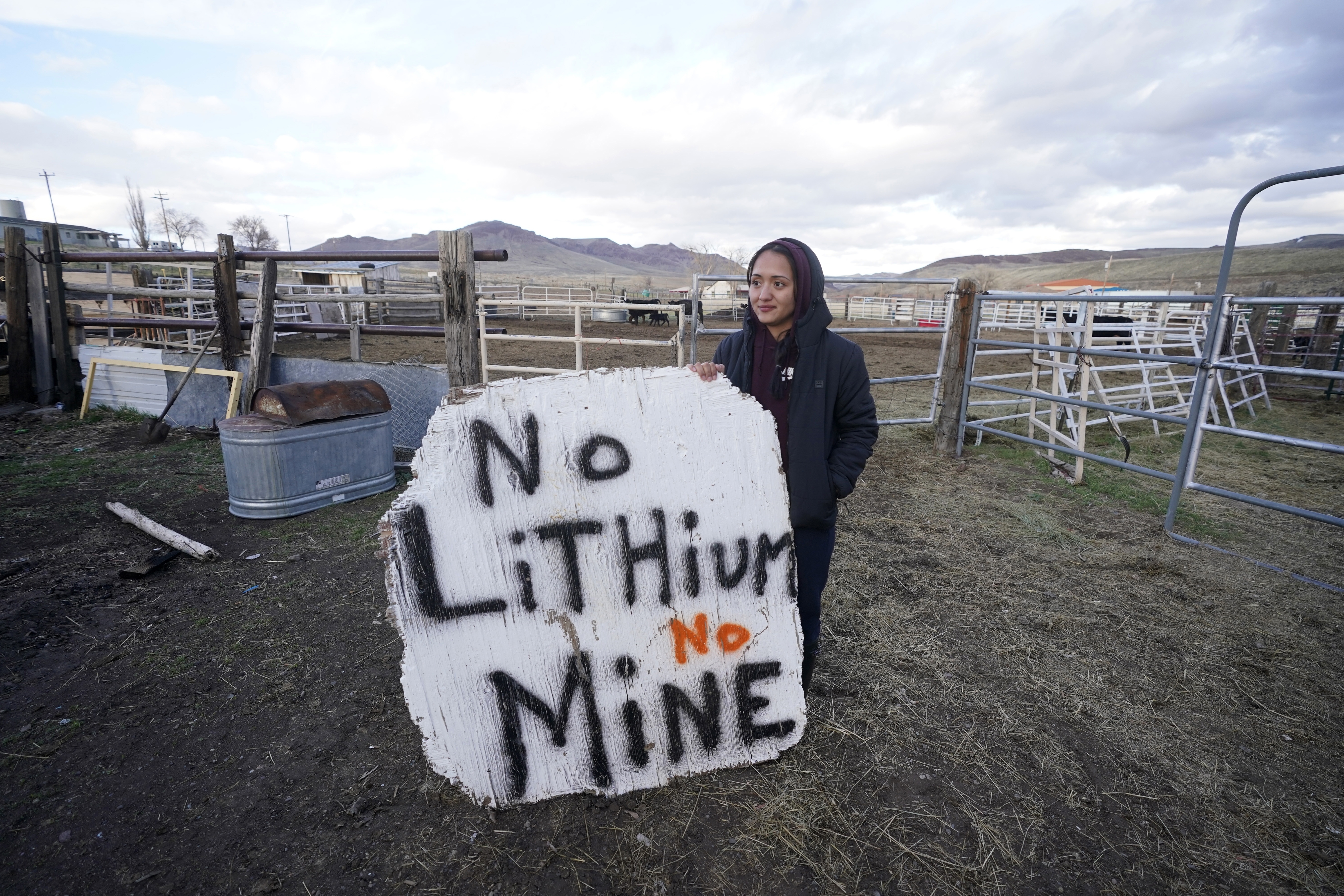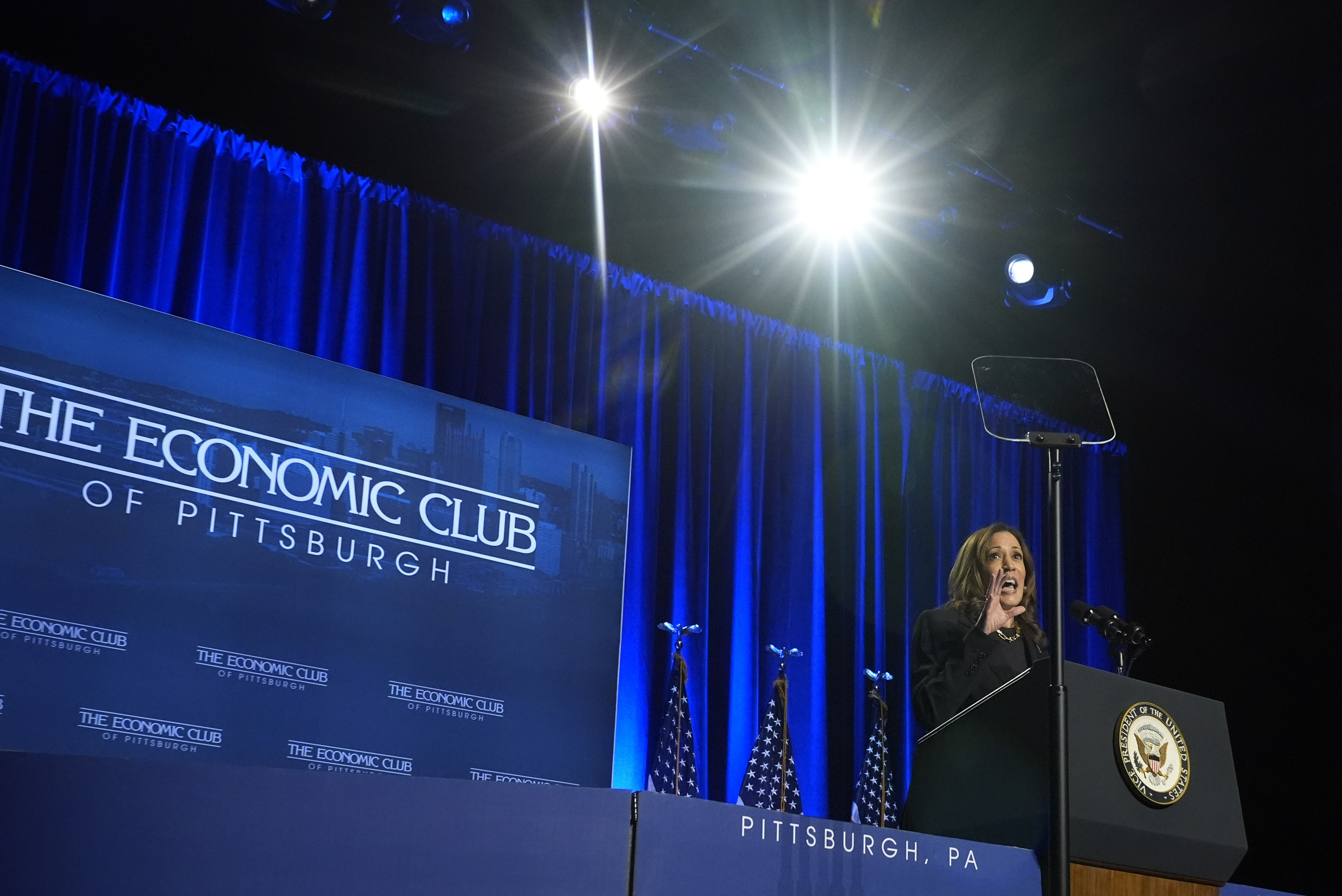Ben Werschkul
·Washington Correspondent
YAHOO FINANCE
Thu, October 3, 2024
Kamala Harris doesn’t just want to build more factories in the US if elected president. She also wants to help secure steady supplies of materials to fuel them.
A recent promise that embodies this approach is her proposed establishment of a "national reserve" of critical minerals such as cobalt, lithium, and nickel — the crucial building blocks in everything from electric vehicle batteries to jet engines to medical devices.
Such a new reserve could join existing government reserves like the Department of Energy's strategic petroleum reserve and put a Harris administration in competition with Chinese businesses that have long dominated the work of mining and refining these metals.
This idea, which was floated last week in a paper from the Harris campaign, is part of a larger reindustrialization strategy from the Democratic nominee that embraces a Joe Biden-led effort to reimagine the US government's relationship with manufacturers while also differing from the president’s approach in terms of tactics, incentives, and focus.
She described her overall vision in a recent speech as one that would "recommit the nation to global leadership in the sectors that will define the next century."
This shift, according to some Democratic policymakers, is necessary after the Biden years saw a surge in new factory construction but lingering worries about supply chains to feed them.
"I kind of liken our re-embrace of industrial policy as a three-act play," said Jennifer Harris, a top figure who helped lead industrial policy in the early years of the Biden administration.
She is hopeful a Harris presidency could usher in that new chapter, especially around these minerals. "A lot of AI technology buildout is going to involve a lot more rocks coming out of the ground," she said.
It's a vision that could, of course, take a radically different turn if Donald Trump prevails in November.
The GOP nominee laid out his own plan for manufacturing recently, focused on a very different approach of ratcheting up tariffs and then limiting government involvement in the sector itself with lower taxes and fewer regulations.
Read more: Trump vs. Harris: 4 ways the next president could impact your bank accounts
Trump has also been dismissive of Biden's efforts to bring back areas like semiconductors.
"Chips, we're really starting to go [down] with the chips," Trump said during a recent speech, completely overlooking the roughly $280 billion in new investments in the sector implemented during the Biden administration through the 2022 CHIPS and Science Act.
Critical minerals and supply chains
President Biden has indisputably reimagined the US government's relationship with manufacturers, with government efforts in recent years sending billions to semiconductor makers, green energy companies, and more to spur new factory building in recent years.
The Harris-Walz white paper released last week touted Biden's effort and signaled an expansion in different areas — from biomanufacturing to aerospace to quantum computing and more — as well as a section devoted to those critical minerals needed to fuel them.
A Harris-Walz administration would "build out domestic processing capacity of critical minerals necessary for our economic and national security, including by launching a national reserve for these resources," the plan promises.
The Defense Logistics Agency is a wing of the US government that currently gathers and stores some of these metals. Harris signaled a potential expansion of those efforts and a potentially wider focus than simply national security concerns.
Jennifer Harris added that it's part of a necessary second act for government in industry, focused on "the unsexy work of ... fixing a ton of supply-and-demand mismatches at each point of a usually pretty long-falling supply chain that are going to require new policy tools."

US effort to expand the mining of critical minerals has also run into local opposition including from Daranda Hinkey, a Fort McDermitt Paiute and Shoshone tribe member, who protested a Lithium mine near her Nevada home in 2023. (AP Photo/Rick Bowmer)
The potential need for a reserve was perhaps put into stark relief this week when Hurricane Helene disrupted mining operations in North Carolina for quartz, a primary ingredient in the silicon needed for semiconductor production.
Extensive damage to the area could impact access to the mines and the ability to transport for months, according to reports.
Much of how Harris said she would achieve these goals is via a new wave of tax credits dubbed "America Forward tax credits." The credits, the Harris campaign estimates, would cost approximately $100 billion and be paid for by international tax reforms.
Plenty of strings attached
These tax credits will also be designed, the Harris campaign promised, with significant strings attached.
This is much like the Biden administration efforts to link grants for industries like semiconductors with company behavior — everything from unionization, community investments, and prioritizing Made in America products.
On this front, Harris is signaling a continuation of Biden administration practices. One area that got particular focus in the rollout of the CHIPS and Science Act focused on semiconductors was government interest in company practices down to the level of childcare facilities provided.
"And if I had my druthers," added Jennifer Harris, "I would be making sure that there are no share buybacks above a certain level for corporations who are receiving grants or loans from the US government to do some of this rebuilding."

Democratic presidential nominee Vice President Kamala Harris speaks at Carnegie Mellon University on Sept. 25 in Pittsburgh. (AP Photo/Jacquelyn Martin)
And in her recent speech, Harris also outlined a significant carrot for manufacturers as well as for the miners of critical minerals: permitting reform to get projects off the ground quicker.
"Projects take too long to go from concept to reality," she said in her speech, adding, "I will tell you this: China is not moving slowly and we can't afford to either."
Ben Werschkul is Washington correspondent for Yahoo Finance.
Thu, October 3, 2024
Kamala Harris doesn’t just want to build more factories in the US if elected president. She also wants to help secure steady supplies of materials to fuel them.
A recent promise that embodies this approach is her proposed establishment of a "national reserve" of critical minerals such as cobalt, lithium, and nickel — the crucial building blocks in everything from electric vehicle batteries to jet engines to medical devices.
Such a new reserve could join existing government reserves like the Department of Energy's strategic petroleum reserve and put a Harris administration in competition with Chinese businesses that have long dominated the work of mining and refining these metals.
This idea, which was floated last week in a paper from the Harris campaign, is part of a larger reindustrialization strategy from the Democratic nominee that embraces a Joe Biden-led effort to reimagine the US government's relationship with manufacturers while also differing from the president’s approach in terms of tactics, incentives, and focus.
She described her overall vision in a recent speech as one that would "recommit the nation to global leadership in the sectors that will define the next century."
This shift, according to some Democratic policymakers, is necessary after the Biden years saw a surge in new factory construction but lingering worries about supply chains to feed them.
"I kind of liken our re-embrace of industrial policy as a three-act play," said Jennifer Harris, a top figure who helped lead industrial policy in the early years of the Biden administration.
She is hopeful a Harris presidency could usher in that new chapter, especially around these minerals. "A lot of AI technology buildout is going to involve a lot more rocks coming out of the ground," she said.
It's a vision that could, of course, take a radically different turn if Donald Trump prevails in November.
The GOP nominee laid out his own plan for manufacturing recently, focused on a very different approach of ratcheting up tariffs and then limiting government involvement in the sector itself with lower taxes and fewer regulations.
Read more: Trump vs. Harris: 4 ways the next president could impact your bank accounts
Trump has also been dismissive of Biden's efforts to bring back areas like semiconductors.
"Chips, we're really starting to go [down] with the chips," Trump said during a recent speech, completely overlooking the roughly $280 billion in new investments in the sector implemented during the Biden administration through the 2022 CHIPS and Science Act.
Critical minerals and supply chains
President Biden has indisputably reimagined the US government's relationship with manufacturers, with government efforts in recent years sending billions to semiconductor makers, green energy companies, and more to spur new factory building in recent years.
The Harris-Walz white paper released last week touted Biden's effort and signaled an expansion in different areas — from biomanufacturing to aerospace to quantum computing and more — as well as a section devoted to those critical minerals needed to fuel them.
A Harris-Walz administration would "build out domestic processing capacity of critical minerals necessary for our economic and national security, including by launching a national reserve for these resources," the plan promises.
The Defense Logistics Agency is a wing of the US government that currently gathers and stores some of these metals. Harris signaled a potential expansion of those efforts and a potentially wider focus than simply national security concerns.
Jennifer Harris added that it's part of a necessary second act for government in industry, focused on "the unsexy work of ... fixing a ton of supply-and-demand mismatches at each point of a usually pretty long-falling supply chain that are going to require new policy tools."
US effort to expand the mining of critical minerals has also run into local opposition including from Daranda Hinkey, a Fort McDermitt Paiute and Shoshone tribe member, who protested a Lithium mine near her Nevada home in 2023. (AP Photo/Rick Bowmer)
The potential need for a reserve was perhaps put into stark relief this week when Hurricane Helene disrupted mining operations in North Carolina for quartz, a primary ingredient in the silicon needed for semiconductor production.
Extensive damage to the area could impact access to the mines and the ability to transport for months, according to reports.
Much of how Harris said she would achieve these goals is via a new wave of tax credits dubbed "America Forward tax credits." The credits, the Harris campaign estimates, would cost approximately $100 billion and be paid for by international tax reforms.
Plenty of strings attached
These tax credits will also be designed, the Harris campaign promised, with significant strings attached.
This is much like the Biden administration efforts to link grants for industries like semiconductors with company behavior — everything from unionization, community investments, and prioritizing Made in America products.
On this front, Harris is signaling a continuation of Biden administration practices. One area that got particular focus in the rollout of the CHIPS and Science Act focused on semiconductors was government interest in company practices down to the level of childcare facilities provided.
"And if I had my druthers," added Jennifer Harris, "I would be making sure that there are no share buybacks above a certain level for corporations who are receiving grants or loans from the US government to do some of this rebuilding."
Democratic presidential nominee Vice President Kamala Harris speaks at Carnegie Mellon University on Sept. 25 in Pittsburgh. (AP Photo/Jacquelyn Martin)
And in her recent speech, Harris also outlined a significant carrot for manufacturers as well as for the miners of critical minerals: permitting reform to get projects off the ground quicker.
"Projects take too long to go from concept to reality," she said in her speech, adding, "I will tell you this: China is not moving slowly and we can't afford to either."
Ben Werschkul is Washington correspondent for Yahoo Finance.
No comments:
Post a Comment